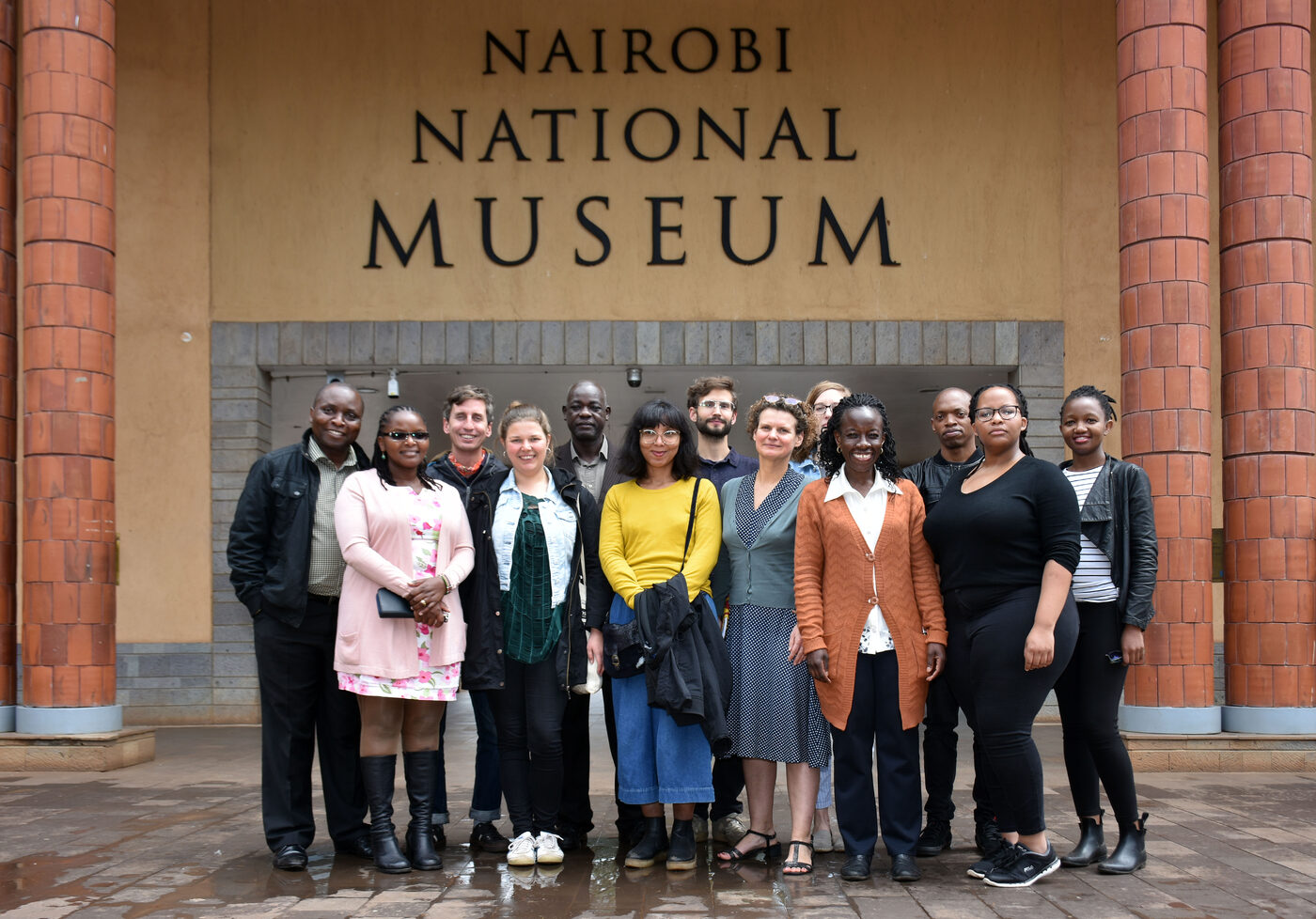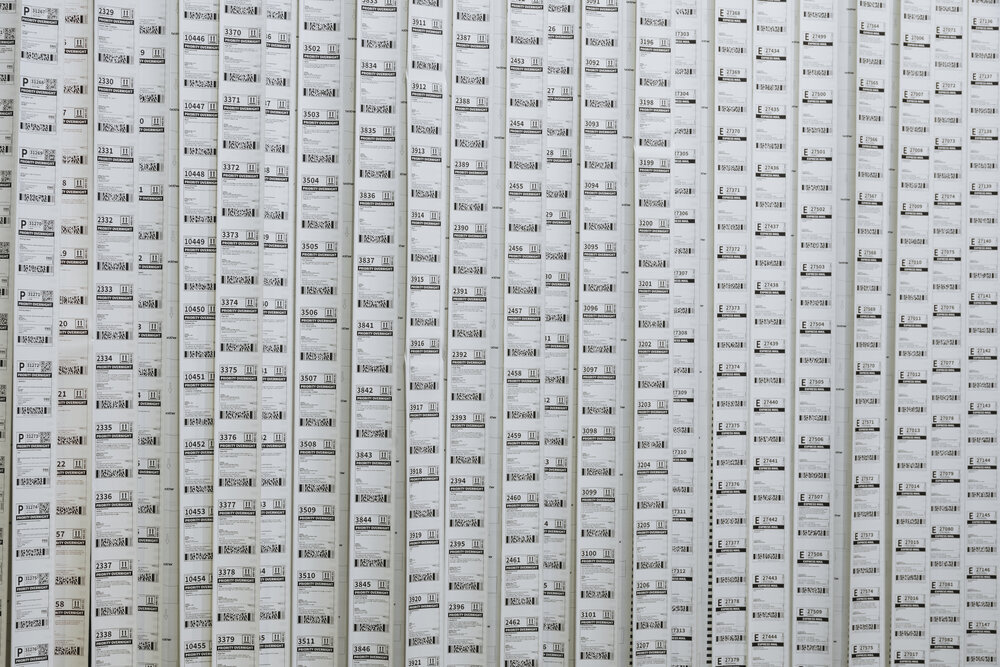Project Overview
The International Inventories Programme (IIP) was a groundbreaking collaboration between Kenyan and European institutions that documented over 32,000 Kenyan cultural objects held in museums across the Global North. More than a simple cataloguing project, IIP opened crucial dialogues about cultural heritage, colonial histories, and the future of museum collections.
Born from a recognition of scattered knowledge about Kenyan cultural collections abroad, IIP brought together an unprecedented partnership between The National Museums of Kenya (NMK), the Rautenstrauch-Joest Museum (Germany), the Weltkulturen Museum (Germany), The Nest Collective (Kenya) and SHIFT Collective (France/Germany), with technical and administrative support from the Goethe-Institut in Nairobi, and the support of many other individual researchers and artists.

A selection of the IIP team participating in a workshop at the Nairobi National Museum, 2019
Key Achievements

A unique record of object movement
The IIP database catalogued 32,321 Kenyan objects held across 30 institutions in 7 countries. This groundbreaking inventory made Kenya's dispersed cultural heritage searchable and accessible, while highlighting important questions about object histories, provenance, and cultural restitution.
Beyond just numbers, the database revealed complex patterns of collection practices, challenged problematic historical categorizations, and created a foundation for meaningful dialogue about cultural heritage. Today, this comprehensive record is held in trust by the National Museums of Kenya, serving as both a research tool and a testament to the scope of Kenya's cultural objects abroad.
Beyond just numbers, the database revealed complex patterns of collection practices, challenged problematic historical categorizations, and created a foundation for meaningful dialogue about cultural heritage. Today, this comprehensive record is held in trust by the National Museums of Kenya, serving as both a research tool and a testament to the scope of Kenya's cultural objects abroad.

Mounted three major exhibitions in Nairobi, Cologne, and Frankfurt
The Invisible Inventories exhibition series brought the database's findings to life through three landmark shows in 2021-2022 at the National Museums of Kenya, Nairobi (March-May 2021), the Rautenstrauch-Joest Museum, Cologne (May-August 2021) and the Weltkulturen Museum, Frankfurt (October 2021-January 2022).
Through contemporary artworks and academic research, artists and scholars explored how to make absent objects present again in contemporary Kenya. The exhibitions created platforms for Kenyan perspectives on restitution while contributing to vital conversations about colonial histories and their ongoing impacts.
Through contemporary artworks and academic research, artists and scholars explored how to make absent objects present again in contemporary Kenya. The exhibitions created platforms for Kenyan perspectives on restitution while contributing to vital conversations about colonial histories and their ongoing impacts.

Published extensive research on object histories and provenance
IIP's research initiatives broke new ground in understanding Kenya's displaced cultural heritage. Key accomplishments included extensive provenance research revealing complex histories of object acquisition and movement, documentation of previously unrecorded Kenyan collections, critical examination of museum categorization practices and their impacts, investigation of objects deemed nationally important by Kenya, and an analysis of collector histories and motivations.
The research challenged traditional museum narratives while creating new methodologies for studying displaced cultural objects. Publications, including the Invisible Inventories zine, made these findings accessible to both academic and public audiences.
The research challenged traditional museum narratives while creating new methodologies for studying displaced cultural objects. Publications, including the Invisible Inventories zine, made these findings accessible to both academic and public audiences.

Facilitated critical discussions about restitution and cultural heritage
The Object Movement Dialogues (OMDs) series created vital spaces for discussion about cultural heritage and restitution. Eight public forums between 2018-2021 brought together museum professionals from Kenya and Europe, contemporary artists and cultural workers, community representatives and knowledge holders, and scholars and researchers.
These conversations tackled crucial questions about object histories, cultural ownership, and the impacts of displacement. The dialogues helped decolonize restitution discourse by centering African perspectives that are historically under-represented in international discussions.
These conversations tackled crucial questions about object histories, cultural ownership, and the impacts of displacement. The dialogues helped decolonize restitution discourse by centering African perspectives that are historically under-represented in international discussions.
A Timeline of Events
2018
- Project inception and receipt of Excellence Initiative grant from the Goethe-Institut
- Initial workshops at National Museums of Kenya
- Beginning of database development
- Initial workshops at National Museums of Kenya
- Beginning of database development
2019
- Expansion of institutional partnerships
- Workshop at the Rautenstrauch-Joest Museum, Cologne
- Data collection and verification begins
- Workshop at the Rautenstrauch-Joest Museum, Cologne
- Data collection and verification begins
2020
- Database reaches 32,000+ objects
- Virtual workshops during COVID-19 pandemic
- Exhibition planning and curation
- Virtual workshops during COVID-19 pandemic
- Exhibition planning and curation
2021
- Exhibition "Invisible Inventories" opens in Nairobi (March-May)
- Exhibition travels to Cologne (May-August)
- Publication of research findings and exhibition catalogue
- Exhibition travels to Cologne (May-August)
- Publication of research findings and exhibition catalogue
2022
- Final exhibition in Frankfurt (January)
- Project documentation and archiving
- Database handover to National Museums of Kenya
- Project documentation and archiving
- Database handover to National Museums of Kenya
Team Reflections
"The objects are just the beginning. They are the things people are proud to display or proud to keep in storage, and so many of them are stolen, taken violently, in terrible circumstances... It's dizzying to consider."
"During the 2-years process of IIP my opinion has shifted: While in the beginning, the objects were pretty much attached to the attributes 'loss' and 'guilt', they have now become 'traces' and 'evidence'. They represent an uncomfortable truth."
"What is special about the IIP is that it is a cooperation between scientists from different museums and artists. Everyone has a strong opinion and certain ideas about the project which partly differ greatly due to these different professional backgrounds."
Legacy
The IIP project demonstrated the power of collaborative research and artistic practice in addressing complex historical legacies. Its database, now held in trust by the National Museums of Kenya, continues to serve as a vital resource for researchers, cultural practitioners, and communities seeking to understand and reclaim their heritage.
The project's innovative approach to combining artistic practice, academic research, and institutional collaboration has created new models for addressing questions of cultural heritage and restitution. While the formal project has concluded, its impact continues to influence discussions about museum collections, cultural ownership, and the ongoing process of decolonizing cultural institutions.
The project's innovative approach to combining artistic practice, academic research, and institutional collaboration has created new models for addressing questions of cultural heritage and restitution. While the formal project has concluded, its impact continues to influence discussions about museum collections, cultural ownership, and the ongoing process of decolonizing cultural institutions.
